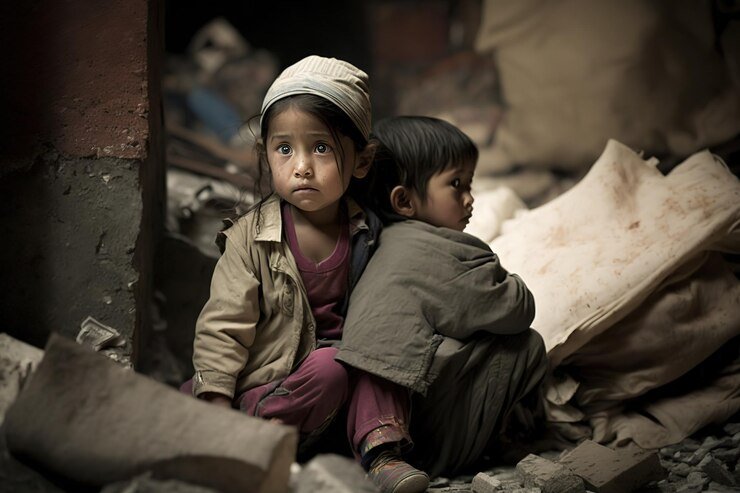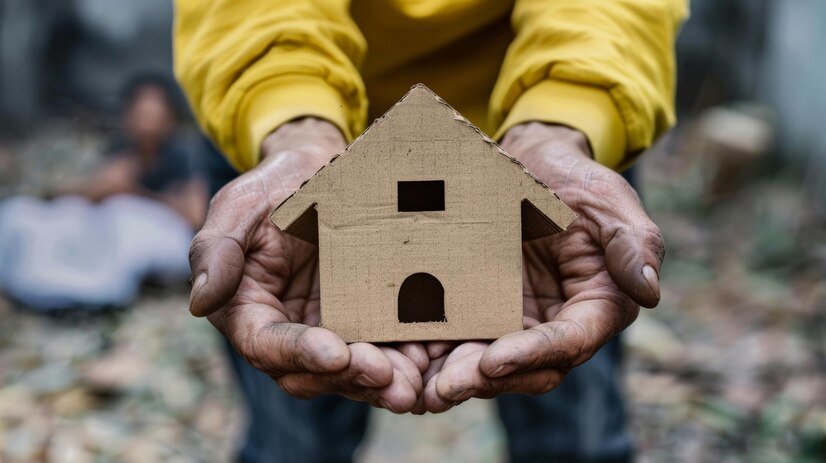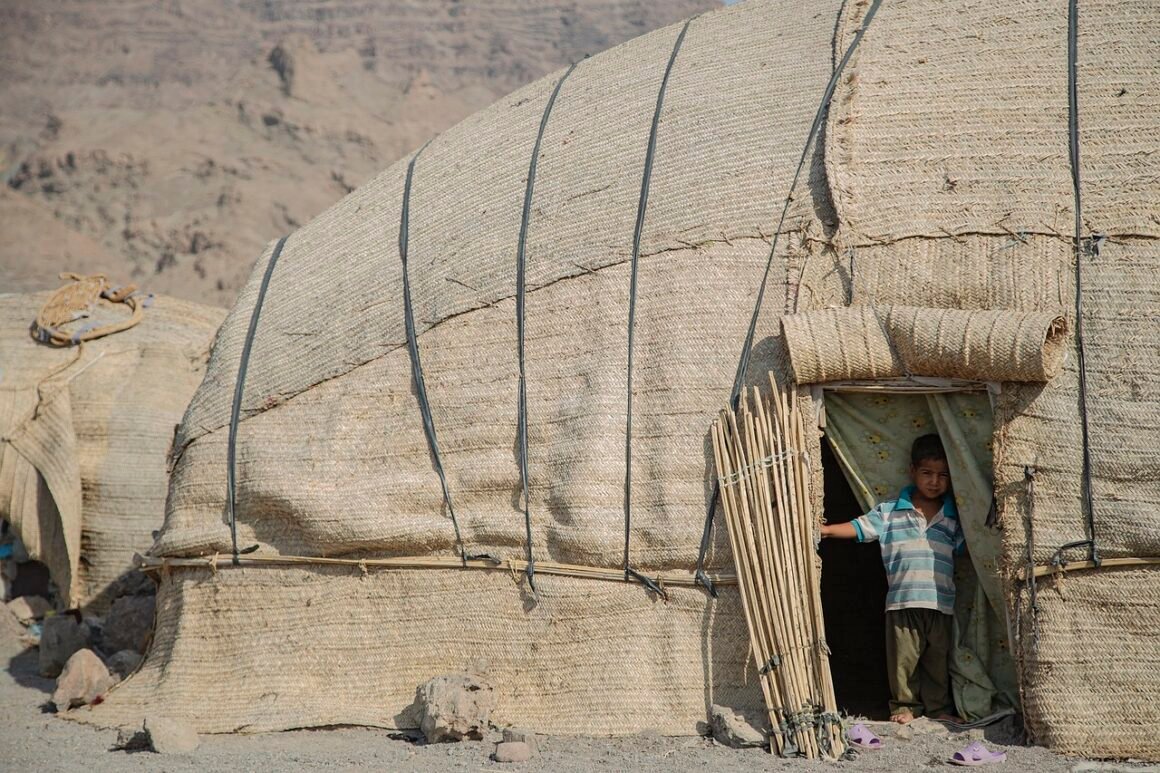
Imagine waking up each day without a roof over your head, in which the world out of doors offers no sanctuary. For many, this isn’t always only a thought experiment; it is a harsh fact. Shelter is frequently considered simply as a commodity—something to buy or promote—but at its core, housing should be recognized as a crucial human property. This blog takes you through the pressing need for adequate housing and delves into why refugees have to be considered more than just bricks and mortar. However, evictions that uproot families to homelessness in casual settlements, the fight for equitable access to housing influences us all. .
Housing is a right, not a commodity
When we view housing as a commodity, it shifts consciousness far from fundamental human needs. This attitude creates barriers for those searching for shelter. It turns homes into profit-making ventures in place of secure areas. Access to adequate housing should now not depend on market fluctuations or financial fame. Every individual merits the honor of having an area to call domestic, free from the danger of eviction or instability. However,Governments and societies must apprehend that housing is foundational to well-being. A stable environment promotes health, schooling, and community engagement.
Evictions and displacement
Evictions and displacement tear apart the fabric of communities. They can take place abruptly, leaving households scrambling to discover new houses. The emotional toll is regularly as heavy because of the bodily pass itself. When a tenant gets an eviction be aware, it’s now not just about losing a roof over their heads. It indicates instability, fear, and uncertainty for all involved. Children may also change schools mid-12 months; mother and father lose jobs due to relocation strain. Displacement impacts entire neighborhoods too. Long-set-up residents are pushed out through growing rents or gentrification efforts. This shift erases cultural identities that have flourished over many years.
Equality and non-discrimination
Equality and non-discrimination are essential to the idea of shelter as a human right. Everyone merits get entry to to secure, ok housing, regardless of their background.Moreover , Discriminatory practices in housing can perpetuate cycles of poverty and exclusion. Marginalized corporations frequently face barriers that save them from securing solid houses. This reality highlights the urgent want for regulations that sell inclusivity.
Furthermore, Housing needs to in no way be treated like a privilege reserved for a pick few. Everyone must have identical opportunities to get access to hotels without prejudice primarily based on race, gender, sexual orientation, or socioeconomic reputation. Creating equitable housing solutions requires collaboration among governments, communities, and companies. Only via collective attempt can we dismantle systemic inequalities and ensure each person enjoys their right to a haven.
Homelessness and informal settlements

Countless people locate themselves without a solid roof over their heads, regularly dwelling in casual settlements. However,These regions are marked with the aid of makeshift shelters and lack simple offerings.
Informal settlements can expand speedy as people search for shelter from poverty or battle. They emerge as communities packed with resilience however additionally vulnerability. Residents face steady threats to their protection and well-being. Access to smooth water, sanitation, and electricity is regularly restricted or non-existent. However,This creates fitness issues that compound the struggles of those living there. Children growing up in these environments omit training and opportunities for development. The cycle of poverty continues, trapping generations within its grasp.
Building back better
Building returned better is greater than only a catchphrase. It’s a name for the movement for communities dealing with the demanding situations of displacement and homelessness.
After crises, whether or not natural failures or economic upheavals, rebuilding regularly makes a specialty of restoring what became misplaced. However, this mindset can neglect opportunities for improvement. The idea encourages progressive answers that prioritize sustainability and inclusivity. Furthermore,When we spend money on resilient infrastructure, we create environments where anybody feels steady. Community engagement plays an essential function in this system. Listening to the voices of these affected results in tailored answers that meet actual needs.
The right to adequate housing in human rights law
The proper to good enough housing is enshrined in numerous human rights frameworks. It is diagnosed as critical for individuals to live with dignity and security. However,International covenants, consisting of the International Covenant on Economic, Social and Cultural Rights (ICESCR), spotlight this proper. Moreover,They assert that everybody merits a safe area to name home.
Adequate housing is going past mere haven. It encompasses elements like affordability, accessibility, and habitability. A residing must provide safety from the elements and offer simple services like water and sanitation. Human rights regulation also emphasizes that states have a responsibility to respect, defend, and satisfy this right. This method creates regulations that make certain equitable get entry to housing for all residents.
When governments fail in their responsibility, inclined populations frequently endure the brunt of these screw-ups—leading to multiplied marginalization or homelessness. Respecting the proper to adequate housing can rework communities into thriving environments where all and sundry has a threat at a better lifestyle.
The right to adequate housing contains freedoms.
The right to good enough housing encompasses essential freedoms that empower people. A stable home provides the muse for non-public improvement and community engagement.
Freedom from arbitrary eviction is essential. Individuals need to now not live in regular worry of dropping their homes because of unexpected selections by using landlords or the government. Stability fosters a sense of belonging, allowing people to thrive.
Furthermore, this proper includes the liberty to pick out one’s dwelling surroundings. Whether it’s a bustling city middle or a quiet suburb, all people deserve the capacity to pick out where they sense maximum snug.
Accessing basic offerings like water and sanitation additionally falls beneath those freedoms. Adequate housing ensures that inhabitants can enjoy life without struggling for essentials.
When we recognize shelter as a human right, we acknowledge that everybody deserves peace inside their walls.
The right to adequate housing contains entitlements.
The right to ok housing encompasses numerous entitlements that make sure people have a stable vicinity to stay. This includes getting entry to inexpensive and secure housing alternatives, which might be critical for well-being. Moreover, need to now not simply have walls around them; they deserve homes that offer safety from the factors. Housing needs to be built in suitable places with necessary infrastructure like water supply and sanitation services.
Additionally, citizens need to feel secure against pressured evictions. However, Such stability fosters a feeling of community and belonging. Tenants also have rights regarding property upkeep, ensuring their residing conditions meet simple fitness standards. Housing quality plays a massive function in common intellectual and physical health.
Key elements of the right to adequate housing

Proper good housing encompasses numerous key factors essential for ensuring dignity and security. First, it should be legally diagnosed via governments. This criminal framework gives individuals safety against arbitrary displacement. Accessibility is another important issue.
Housing needs to be low priced and to be had by every person, no matter their monetary reputation or historical past. It’s also essential that homes offer a sense of safety and privacy. People want spaces in which they can experience steady violence or harassment. Cultural adequacy plays an important function too; housing should admire nearby traditions and customs even as assembly the unique wishes of numerous communities.
Conclusion
The proper shelter is fundamental. It shapes our societies and defines human dignity. Without it, endless people face uncertainty. Furthermore, Access to good enough housing influences fitness, schooling, and network balance. Ensuring absolutely everyone has a roof over their head fosters social concord. As we suggest for coverage modifications, let’s keep the communication alive.
Engaging with groups brings focus to these pressing problems. Furthermore, We can collectively rework city landscapes into inclusive spaces where everyone feels valued and stable. The fight for this basic necessity has to be relentless. Moreover, We owe it to future generations to create environments that uphold human rights universally. A dedication to equitable housing is critical for progress toward a simple society in which all thrive collectively.
FAQs
What does it suggest that haven is human property?
A.Shelter as a human right means that every man or woman merits access to secure, ok housing without discrimination. However,It recognizes the importance of housing in ensuring dignity, safety, and well-being.
How can evictions be averted?
Preventing evictions calls for a multifaceted method. Moreover,This includes regulations for rent control, imparting legal useful resources to tenants dealing with eviction, and imposing social assistance programs aimed toward preserving households of their homes.
What are informal settlements?
Informal settlements are regions in which human beings stay without formal popularity or protection from authorities. These communities often lack simple services like sanitation and power however function as vital shelters for many individuals and households.
How does homelessness relate to the right to good enough housing?
Homelessness starkly highlights the violation of the proper to good enough housing. When people no longer have access to secure living conditions or face regular threats of displacement, they enjoy profound impacts on their health and well-being.
